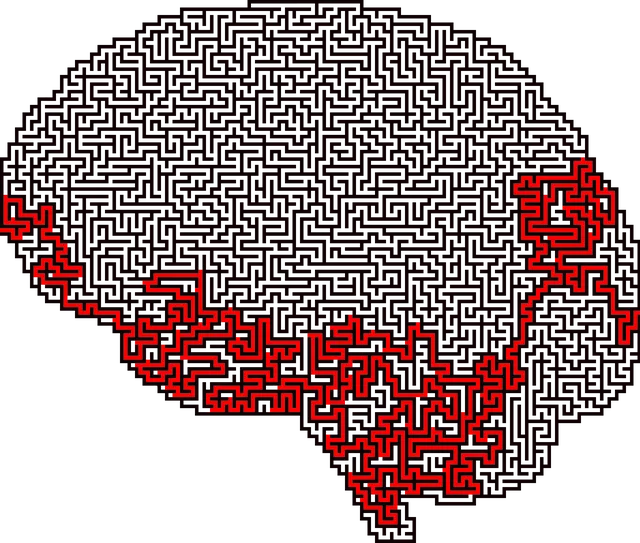The RFM (Resilience, Flexibility, Mindfulness) approach combines self-care, social skills training, and mindfulness exercises for better stress management and emotional regulation. Kaiser's model integrates therapy into primary care, recognizing the link between mental and physical health, offering personalized counseling for anxiety and depression. Aurora, inspired by this model, provides holistic mental wellness services within primary care, ensuring convenient access to therapy and coping skills development, covered by insurance like Kaiser. Techniques such as mindfulness meditation and social skills training enhance resilience, reduce stress, and prevent depression.
In today’s fast-paced world, resilience is key to navigating life’s challenges. This article explores the power of RFM (Recovery, Resilience, and Mental Health) in enhancing well-being. We delve into how organizations like Kaiser are integrating therapy into healthcare, with a focus on the Aurora Model, which expands access to mental wellness services. Additionally, we present practical resilience-building exercises for daily life, offering valuable strategies that anyone can use. Learn how Aurora and Kaiser approach mental health therapy, empowering individuals to foster resilience and overcome obstacles.
- Understanding RFM and its Impact on Mental Health
- Kaiser's Approach to Integrating Therapy into Healthcare
- The Aurora Model: Enhancing Access to Mental Wellness Services
- Resilience Building Exercises: Practical Strategies for Daily Life
Understanding RFM and its Impact on Mental Health

Understanding RFM—or Resilience, Flexibility, and Mindfulness—is crucial in navigating today’s challenges and enhancing mental health. This holistic approach to well-being integrates self-care practices, social skills training, and self-awareness exercises, offering a comprehensive strategy for building resilience. By fostering adaptability and mindfulness, individuals can better manage stress, improve emotional regulation, and enhance their overall quality of life.
In the context of mental health, Aurora does Kaiser cover mental health therapy? This question is increasingly relevant as people seek effective tools to support their psychological well-being. RFM exercises, backed by scientific research, provide accessible and beneficial practices that can be integrated into daily routines. They empower individuals to navigate life’s storms with greater equilibrium, ensuring they have the resources needed to thrive in a fast-paced world.
Kaiser's Approach to Integrating Therapy into Healthcare

Aurora, like many progressive healthcare systems, has looked to Kaiser’s innovative approach to integrating therapy into primary care settings. Kaiser’s model emphasizes a holistic view of patient well-being, recognizing that mental health is inextricably linked to physical health. This integrated care strategy allows for earlier intervention and more effective management of conditions such as anxiety and depression, which can significantly impact overall mood regulation and quality of life.
By incorporating empathy-building strategies into their therapy practices, Kaiser aims to create a supportive environment that fosters open communication and encourages patients to actively engage in their mental health journey. This personalized approach not only enhances the therapeutic experience but also contributes to long-term anxiety relief and improved mood management for individuals within their care.
The Aurora Model: Enhancing Access to Mental Wellness Services

The Aurora Model represents a pioneering approach to enhancing access to mental wellness services, particularly within healthcare systems. This model aims to bridge the gap between physical and psychological well-being by integrating mental health support into primary care settings. By doing so, it ensures that individuals receiving treatment for physical ailments also have easy access to counseling and therapy when needed.
For instance, Kaiser Permanente, a prominent healthcare provider, has recognized the value of such an approach. They offer the Mental Wellness Podcast Series Production as a resource, providing a platform for self-awareness exercises and promoting self-esteem improvement. This initiative underscores their commitment to supporting mental health awareness and accessibility, mirroring the core principles of the Aurora Model.
Resilience Building Exercises: Practical Strategies for Daily Life

Resilience building exercises are practical strategies that can significantly enhance one’s ability to cope with life’s challenges. These techniques, often incorporated into daily routines, aim to strengthen mental fortitude and promote well-being. Exercises like mindfulness meditation, for instance, teach individuals to stay present, reducing anxiety and stress levels. By focusing on the here and now, folks learn to navigate life’s ups and downs without being overwhelmed.
Aurora does Kaiser cover mental health therapy? Absolutely. Many insurance plans, including Kaiser, offer comprehensive coverage for various forms of therapy, including resilience building exercises. This can include Social Skills Training and Coping Skills Development, which are pivotal in depression prevention. These programs empower individuals to build a resilient mindset, fostering better emotional regulation and overall mental health.
The implementation of RFM and resilience building exercises offers a comprehensive approach to enhancing mental wellness. As discussed, models like the Aurora approach, inspired by innovative initiatives like Kaiser’s integration of therapy into healthcare, can significantly improve access to mental health services. By combining evidence-based strategies with practical daily exercises, individuals can build resilience and navigate life’s challenges more effectively. With proper support, as Aurora exemplifies, anyone can unlock their potential for mental strength and overall well-being, ensuring a brighter and more resilient future. Additionally, understanding the RFM framework equips individuals and healthcare providers alike to prioritize mental health, just as Kaiser does, fostering a culture where therapy is accessible and valued.






